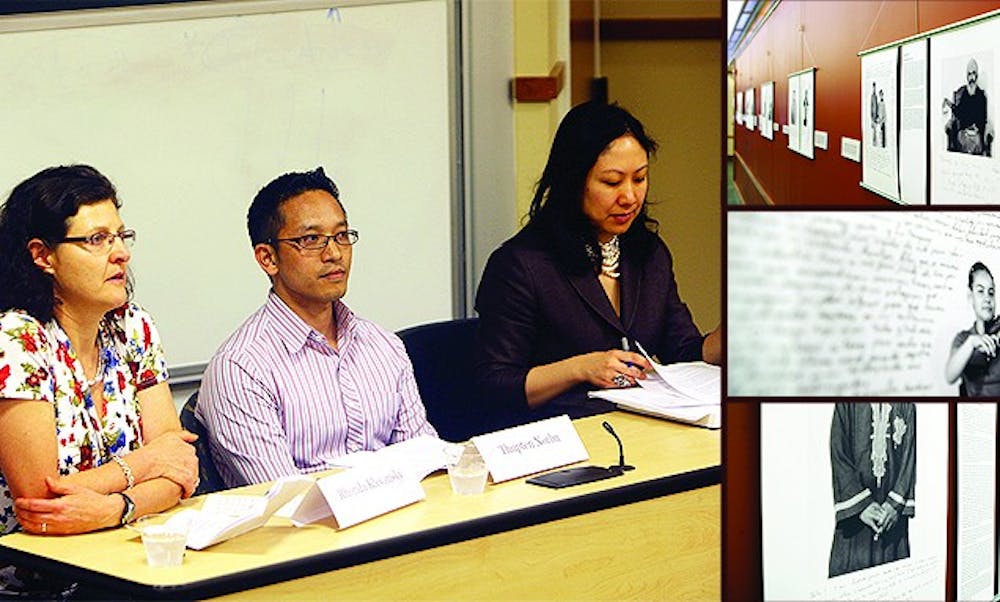Photography can illuminate the challenges of refugees as they adjust to life in their adopted countries, a documentary photographer said Wednesday.
Rhonda Klevansky, a master’s in liberal studies candidate, presented “Fragments from Another Life,” an exhibit of 44 black-and-white photographs in the lobby of Rubenstein Hall. The ongoing exhibition features refugees and seekers of asylum who have immigrated to the United Kingdom from other countries amid conflict. About 15 students and faculty attended the opening, which concluded with a panel discussion that featured a former Tibetan refugee and an immigration law expert.
Klevansky opened the panel with a summary of her project and her hope that students will be inspired by the photographs and motivated to examine more deeply the problem of refugee displacement. As an immigrant from South Africa, she noted the pull to take action about the problems associated with immigration and asylum in her own country and around the world.
“I thought, ‘I should use my camera—that’s my tool,’” Klevansky said. “I wanted to show these refugees in a dignified form as individuals.”
Taken between 2000 and 2002, the photographs depict refugees holding items brought with them from their home countries. The reverse side of the photos are inscribed with the subjects’ personal attachment to those items. Klevansky said she wanted to include the voices of the subjects to help explain their pictures, but some subjects instead wrote whatever they wanted.
Tibetan refugee Thupten Norbu, a master’s candidate in international development policy at the Center for International Development, said the refugee problem is often overlooked as compared to political and economic debate.
After his parents left Tibet to settle in India, Norbu said he and other refugees were perceived as a threat or drain to the Indian economy and looked down upon by others. Tibetan refugees often live in fear of persecution or deportation. The problems associated with displaced people can only be mitigated through changing the perception of refugees and considering temporary as well as medium- and long-term policy solutions.
Margaret Hu—visiting assistant professor at the School of Law who specializes in national security, immigration policy and civil rights—noted that as a legal counsel at the Civil Rights Division of the Department of Justice, she often handled cases related to persecution of immigrants, particularly following 9/11.
“My first day of work was September 10, 2001,” she said.
Upon entering the United States, many refugees are forced to spend indefinite periods in detention centers with conditions that often resemble prisons, Hu noted. The conditions in these centers are often beyond the imagination of most Americans.
Audience member Rosemary Fernholz, a senior research scholar and lecturing fellow in public policy at the CID, noted that questions about immigration policy remain difficult to answer.
“What do you do?” she said.
Get The Chronicle straight to your inbox
Signup for our weekly newsletter. Cancel at any time.

